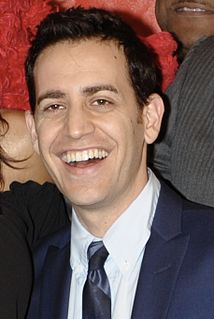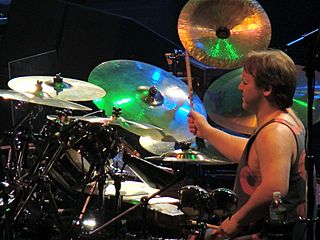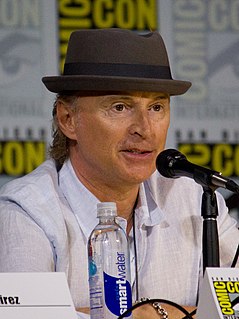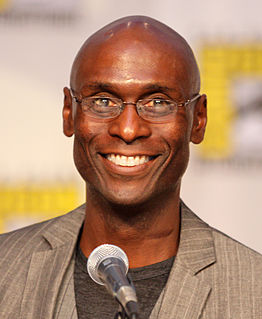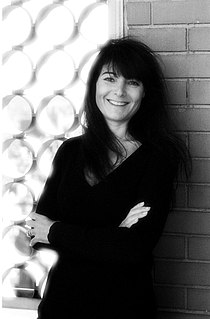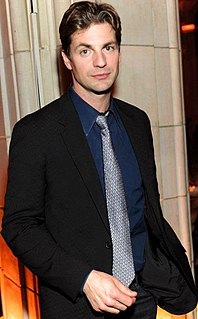A Quote by Jason Winer
I like letting takes play out, beginning to end. I don't like doing pick-ups of one line or another. I like letting the actors discover the flow of the scene, inside the scene as a whole.
Related Quotes
Something like the alleyway scene, where it's like a mini one-act play and you run the whole 18 pages of it, it's so much easier to get lost in it. That's why actors love doing theater so much, I guarantee you. It's refreshing to be able to do something where you don't have to be stopped every two seconds, and you can just play it out and it's done.
I do prefer doing more takes. There's something very organic that comes from the first take, but certain things come out. More details come out, in the way another actor says something. It's always this investigative process. You come further and further to the truth, the more you escalate. I like to do a lot of takes. I have a hunger for it. I like to see what there is to discover in a scene, that hasn't been thought of.
I really like the Chris-R scene and of course the "you are tearing me apart Lisa" scene. The reason I love the Chris-R scene is because we worked really hard to finish it. It's not just that though, it brings people together. Everyone is one the roof together by the end of the scene. You see the perspectives of the different characters. I feel like with all the connections in this scene that the room connects the entire world
Like, shopping, in a way, has the same dynamic as smoking. Because what happens in shopping is, you're bored, you're frustrated, you have this negative emotion and instead of letting the emotion play out, be honest, confronting it, and letting yourself feel pain, you go buy something that takes you out of yourself and feels fun and exciting. But you have to go back to yourself.
You are preparing yourself for a scene, and the most important thing is to remain emotionally available and remain in the moment with your scene partner. You don't want to let your own self-consciousness block the flow of creativity that's coming out so that you can act and react, and play what the scene is all about.
